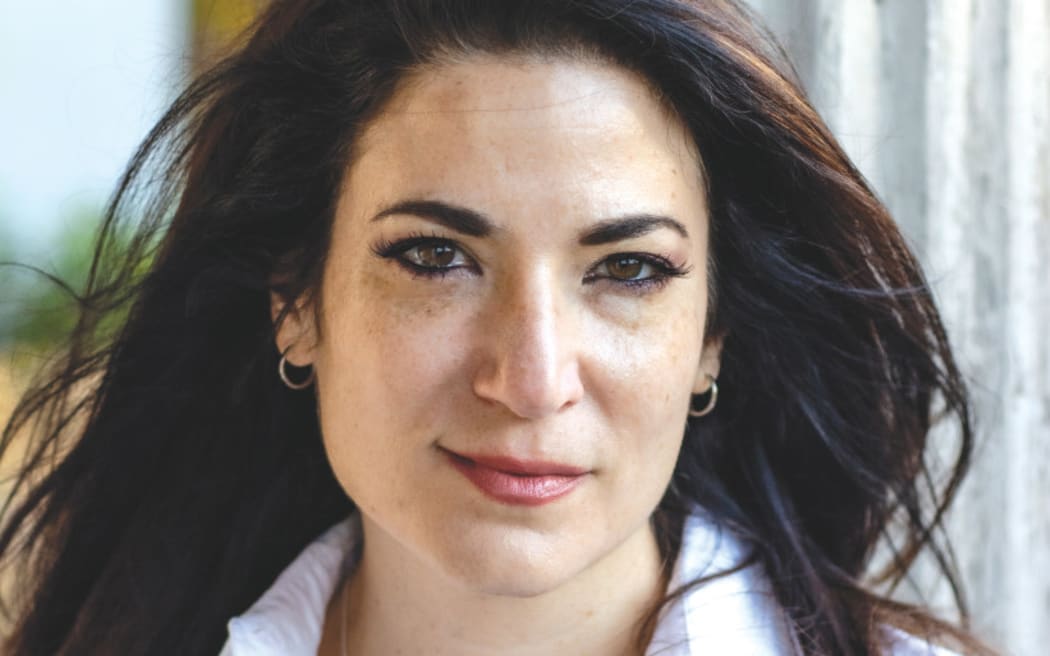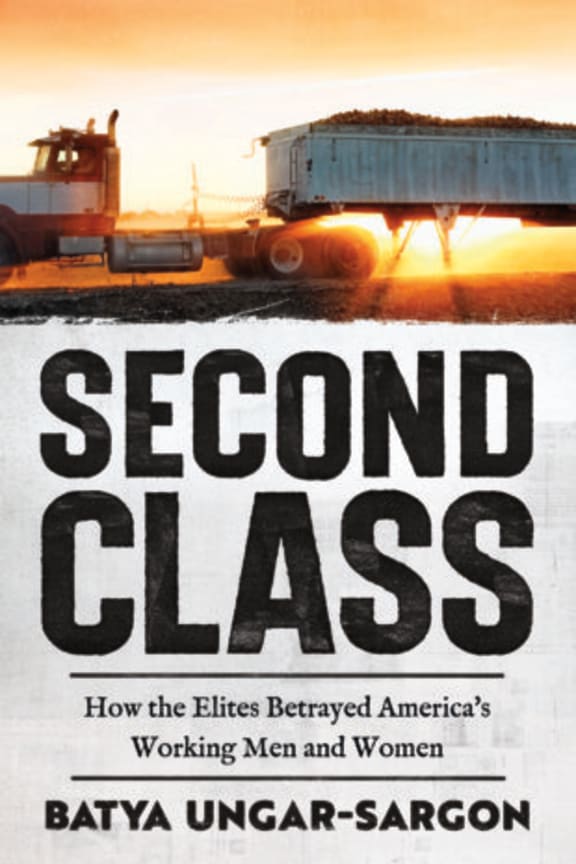Politics doesn’t divide America, class does.
This is the conclusion of Batya Ungar-Sargon, the deputy editor of Newsweek.
After travelling the country and talking to cleaners, fast food workers, labourers and truckers, she says divisions between people with a university degree and blue-collar workers are what's driving deep polarisation in America.
They feel as if there is a class of elites hoarding the American dream of financial stability and homeownership, and, Ungar-Sargon says, they are quite correct.
Her new book is called Second Class: How the Elites Betrayed America's Working Men and Women.
What most surprised her on her travels was how un-polarised working class people were, she tells Jesse Mulligan.

Batya Ungar-Sargon Photo: Renata Bystritsky
“There was so much consensus on the issues between working class Democrats and working class Republicans.
“People lived in mixed communities. They lived in communities that were racially diverse, that were politically diverse, that were religiously diverse. And it would just never occur to someone to hold it against their fellow American."
The most polarised Americans are the products of the university system, she says.
“They come out of university, if they are Republicans, they become extremely attached to the Republican Party and the list of priorities of the Republican Party. If they're liberals, which is most often the case when somebody gets a college degree, they come out of it, and they look at the sort of Democratic Party's list of agenda items.
“And it's like check, check, check, check, they really subscribe to all those views. And the reason for that is because those views were cultivated to appeal to them.”
Both parties cater to their rich elites, she says.
“But if you're a working-class person, you develop your own ideas about what would help you, neither party is catering to the working class. Neither party really reflects that ideology.
“And as a result, working class people have very little spiritual or psychological investment in politics.”
Left wing elites have, over that last few decades, become untethered from working class communities, she says.
“The leftist elites went from being a cultural elite that lived among working class people, made sort of on a par the same amount of money as a high working class person to becoming an economic elite.
“They're now the top 20 percent and they are hoarding over 50 percent of the GDP in this country.”
These elites, she contends, see themselves as the “good guys.”
“When they look at the working class and they see working class people struggling to achieve the American dream, their answer is, well, let's give them more money, let's give them more welfare, let's expand the welfare state, I'm willing to pay higher taxes, you can take it out of my paycheck.
“And I'm happy to give them free housing or food stamps, or free this or free that.”
The people she spoke to in her book don't believe in paternalism, she says.
“They believe in autonomy; they get a lot of dignity out of the work that they do.
“And all they want is for that work to give them in exchange, the most modest form of the American Dream, the most modest form of a stable life.”
Donald Trump, she says, is resonating with many blue collar voters.
“They saw in Trump a champion because he championed them from an economic point of view, you have to understand when Trump showed up on the scene, there were two parties engaged in a handshake agreement that we should have free trade with China and basically ship as many jobs overseas in exchange for cheap imports.
“Both parties agreed with that ideology. NAFTA was signed into law by a Democrat and Trump showed up and said, free trade, we're gonna have a trade war with China, we're gonna have 25 percent tariffs put on steel and aluminium protect those jobs, we're gonna put tariffs on every import.”
Immigration is another area where consensus among elites differs from working people, she says.

Photo: Encounter
“Immigration is about economics. Immigrants who come here are people who are not going to work in the knowledge industry, they're going to be competing with the working class for their jobs and driving down the wages in those jobs simply by supplying more labour and working class jobs.
“And so, it really is class warfare against the working class. And they really see it that way. But they get called racist by the left for caring about immigration.
“Trump showed up and said, I understand that for you, immigration is an economic consideration. And I'm gonna put that front and centre - and he did.”
Trump is also making headway among black working class voters, she says, because the Democrats have an “addiction” to open borders.
“As recently as the ‘90s, Bill Clinton put the civil rights icon, Barbara Jordan in charge of an immigration commission, and she concluded that mass migration was going to have a deeply harmful effect, and already was having a deeply harmful effect, on the black community.
“Because migrants were going to be driving down the wages of working class men, among whom black men are disproportionately counted.”
Over the course of the last 50 years, the Democrats, have gone from representing labour to representing the college educated, she says.
“They created policy after policy after policy, starting with NAFTA, then defunding vocational training, free trade with China, offshoring of manufacturing, opening the border.
“In 2019, every single Democrat who was running for office, except for one, raised their hand in answer to a question about whether they would decriminalize illegal border crossing, which Joe Biden then proceeded to do.”
College educated elites like to “rail against the 1 percent”, she says.
“But the share of the economy that the 1 percent controls has not significantly changed over the last 50 years. It's the top 20 percent who have really, really bolstered their fortunes and now control more than half of the GDP.”
The economy in the US is skewed towards the college educated, Ungar-Sargon says, but the solution is not to push more and more people through the college system.
“We rely on there being people who get a lot of dignity out of changing the diapers of the elderly, for example, we are very lucky that there are millions of Americans who would rather do that than go to college.
“And yet, instead of having a sense of gratitude towards them, and saying, you know what, you too will be able to be a homeowner, because it is disgusting for me to rely on your labour, which I wouldn't want to do and then say, Oh, and by the way, you're always going to have to be worried about whether or not you can pay rent, you will never be able to retire, you will be terrified every time the electrical bill comes. That's unacceptable. That should be unacceptable to any civilised person.”
It would be easy for the Democrats to turn “ship around” and regain voters who are defecting to Trump, she says.
“It's so easy how they could get them back. But they don't want to hear it, because they're very attached to the path they've chosen and they'd rather blame the voters, than deliver for them.”
Related

